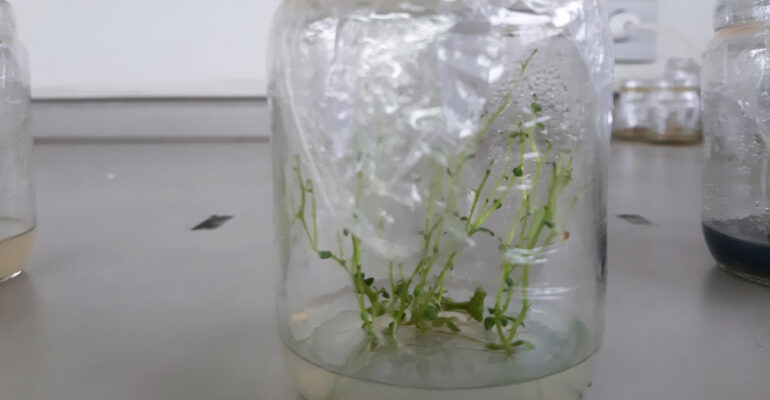IPB Expert: Genetic Engineering on Fruits is Not Dangerous

Fresh horticultural products have a number of disadvantages including getting withered and rot fast. If post-harvest management is not applied correctly, it will result in loss for farmers and traders, reduced food availability and low quality of commodities received by consumers.
Some agricultural industries have carried out post-harvest management such as setting the temperature or humidity of fruit or plants. Unfortunately this method is not easy to implement in Indonesia, considering the limited facilities and infrastructure and lack of an adequate technology. Thus the delay of natural food softening process is needed so it can have longer shelf-life in the market. One alternative that can be done is genetic engineering. Genetic engineering is a genetic modification that directly manipulates an organism’s genes using biotechnology.
The controversy on genetic engineering is inevitable. Many says that genetic engineering can make the product dangerous. This is clarified by Dr. Ir. Darda Efendi, an experts on fruits biotechnology in IPB University. “Genetic engineering has been created according to the protocols, so the result will not be harmful. Even the soy we consume (mostly is imported soy) and is processed to become tempeh and tofu is the result of genetic engineering,” explained Dr. Darda.
Dr. Darda said that genetic engineering has the advantage of being a potential tool for plant breeding. In addition, genetic engineering can eliminate the boundaries between living things so that they can take genes from certain animals, bacteria, or fungi that are needed, then genetic engineering can be transformed into the plants we want.
“The genetic engineering which is carried out theoretically can also shorten breeding time compared to conventional breeding. Genetic engineering allows for changes in plant properties, either by removing traits that are not desirable, increasing or introducing new traits,” Dr. Darda.
One of the researches done by Dr. Darda is a genetic engineering on avocado. Dr. Darda uses this technique as a solution in post-harvest handling; through the inhibition of ethylene biosynthesis and delay of food softening process by deactivating the ACC Oxidase gene code.


